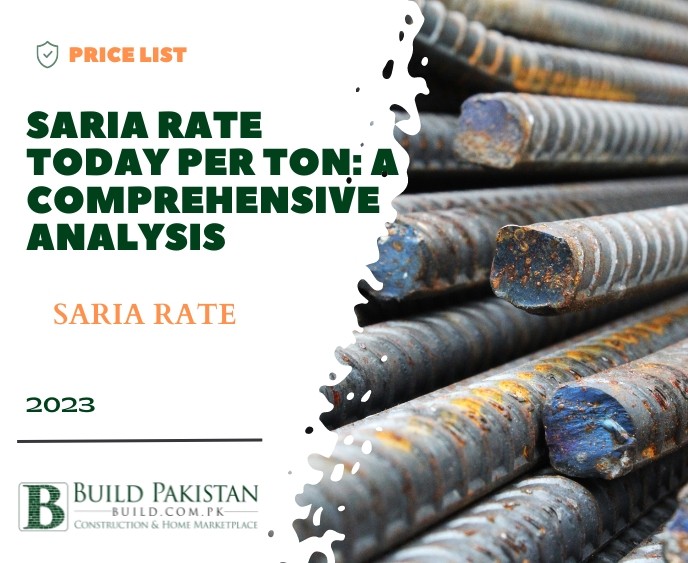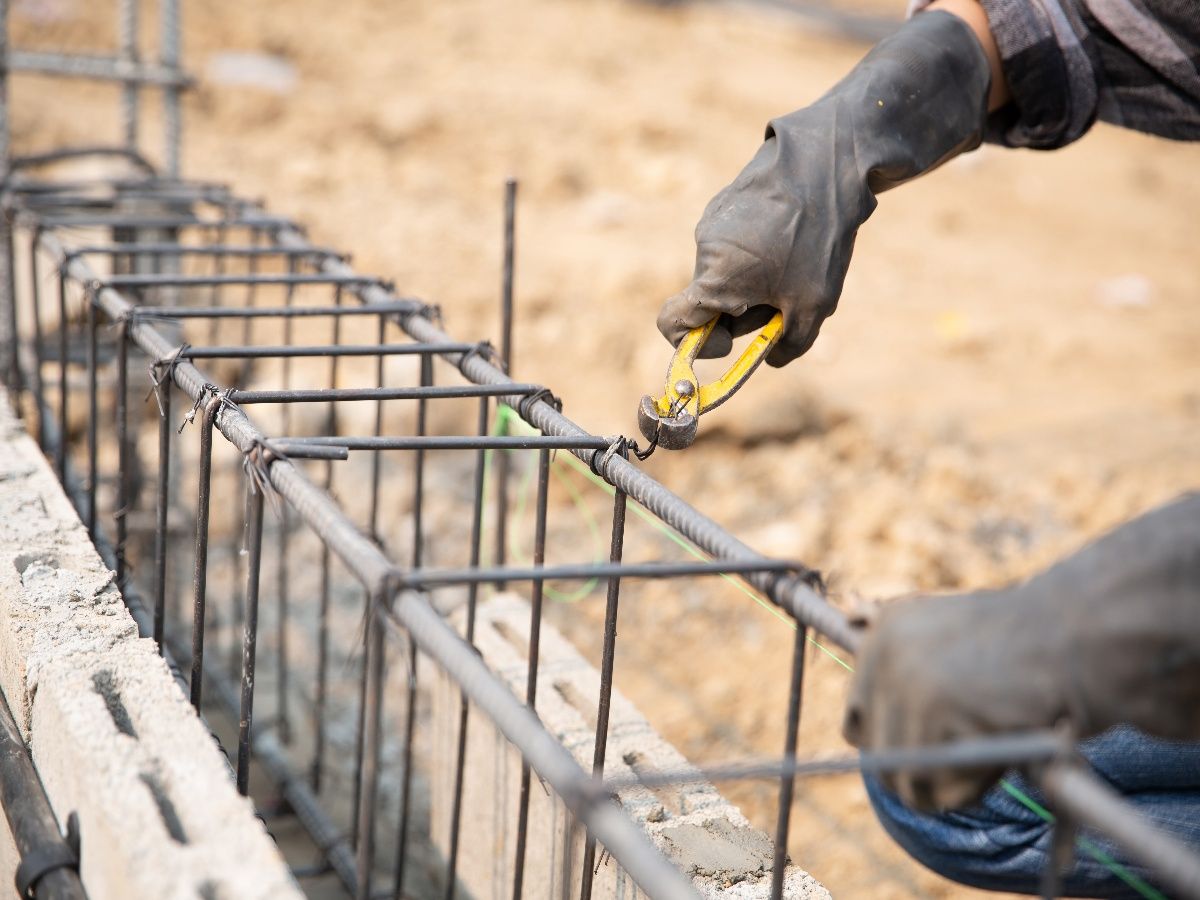Saria Rate Today per Ton: A Comprehensive Analysis

Introduction:
Saria, also known as TMT (Thermo-Mechanically
Treated) bars, plays a crucial role in the construction industry. It is a type
of reinforced steel bar widely used for structural reinforcement in buildings,
bridges, and infrastructure projects. In this blog, we will delve into the
concept of Saria rate today per ton, exploring its significance factors
affecting the pricing, market dynamics, and implications for the construction
sector in Pakistan.
Understanding Saria
Saria refers to steel bars that have
undergone a specialized manufacturing process known as thermo-mechanical
treatment. This process involves subjecting the steel bars to intense heat and
mechanical manipulation, resulting in enhanced strength, ductility, and
resistance to corrosion. These characteristics make Saria an ideal choice for
reinforcing concrete structures, providing structural integrity and durability.
Factors Affecting Saria Rate Today per Ton
Several factors
influence the Saria rate today per ton. These factors include:
Global Steel Market:
The global steel market, including
factors like demand and supply dynamics, international prices of raw materials,
and geopolitical factors, impacts the pricing of Saria. Fluctuations in global
steel prices can have a direct influence on the Saria rate.
Raw Material Costs:
The cost of raw materials used in the
production of Saria, such as iron ore, coal, and scrap metal, significantly
affects its pricing. Any fluctuations in the prices of these raw materials can
impact the overall production cost of Saria, subsequently affecting its rate
per ton.
Manufacturing and Transportation Costs:
The manufacturing
process of Saria involves various costs, including labor, energy, and machinery
expenses. Additionally, transportation costs from the manufacturing facilities
to distribution centers and construction sites also impact the final rate per
ton.
Currency Exchange Rates:
Saria pricing can be influenced by
currency exchange rates, especially if a significant portion of raw materials
or manufacturing processes involves imports. Fluctuations in exchange rates can
affect the cost of imported components and, subsequently, the final pricing of
Saria.
Market Dynamics and Demand-Supply Balance:
The demand for Saria in the construction sector is a key driver of its pricing. Factors such as infrastructure development projects, residential and commercial construction activities, and government policies promoting construction can impact the overall demand for Saria. A strong demand for Saria can result in higher rates, while a subdued demand can lead to competitive pricing.
Additionally, the balance between supply and demand in the
market plays a significant role. If the supply of Saria is limited in relation
to the demand, prices are likely to rise. Conversely, if the market experiences
oversupply, prices may be more competitive.

Saria Rates as Requirment
Note: These are estimated Prices. These Prices can vary in different markets.
| |||||||||||||||||||||||||||||||||||||||||||||
Implications for the Construction Sector
The Saria rate
today per ton has implications for the construction sector in Pakistan.
Fluctuations in Saria prices can impact project budgets, construction
timelines, and overall project feasibility. Construction companies and
contractors need to closely monitor Saria rates and factor them into their cost
estimations and project planning to ensure financial viability and
profitability
Why it is important in construction sector?
Saria, or TMT (Thermo-Mechanically Treated) bars, holds
significant importance in the construction sector for several reasons:
Structural Reinforcement:
Saria is primarily used for
structural reinforcement in construction projects. It provides strength,
durability, and ductility to reinforced concrete structures. By reinforcing
concrete with Saria, the overall structural integrity of buildings, bridges,
and other infrastructure is enhanced, ensuring their ability to withstand
various loads and external forces.
Safety and Structural Stability:
The use of Saria in
construction improves the safety and structural stability of buildings. It
helps prevent structural failures, such as collapse or deformation, during
earthquakes, heavy wind loads, and other adverse conditions. Saria acts as a
backbone, reinforcing the concrete and providing the necessary tensile strength
to counteract the compressive forces experienced by structures.
Longevity and Durability:
Saria enhances the longevity and
durability of structures. Its resistance to corrosion and ability to withstand
harsh environmental conditions ensure that the reinforced concrete remains
intact over an extended period. This reduces maintenance and repair costs,
making it a cost-effective choice in the long run.
Flexibility in Design:
Saria's flexibility allows architects
and engineers to design and construct complex and innovative structures. Its
malleability enables it to be bent, shaped, and customized according to
specific project requirements, allowing for creative architectural designs
while maintaining structural integrity.
Construction Efficiency:
The use of Saria improves construction
efficiency and speeds up project timelines. Its easy availability, standardized
sizes, and ease of handling make it a convenient choice for construction teams.
The predictable and reliable properties of Saria simplify the construction
process and reduce the overall time required for project completion.

Conclusion:
The Saria rate today per ton is influenced by
various factors, including global steel market dynamics, raw material costs,
manufacturing and transportation expenses, and currency exchange rates.
Understanding these factors and their implications for the construction sector
is essential for construction professionals, developers, and contractors. By
staying informed about the Saria rate, industry stakeholders can make informed
decisions, manage project budgets effectively, and ensure the use of
highquality reinforced steel bars for robust and durable construction
projects.










